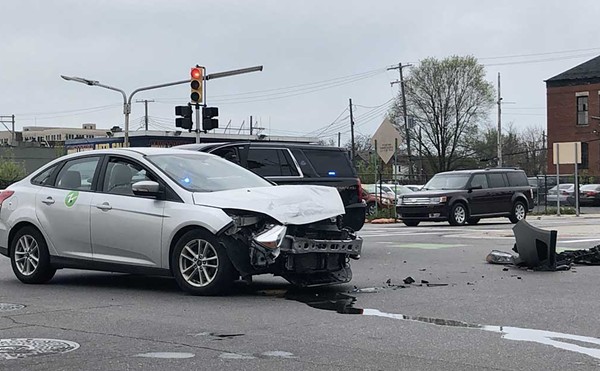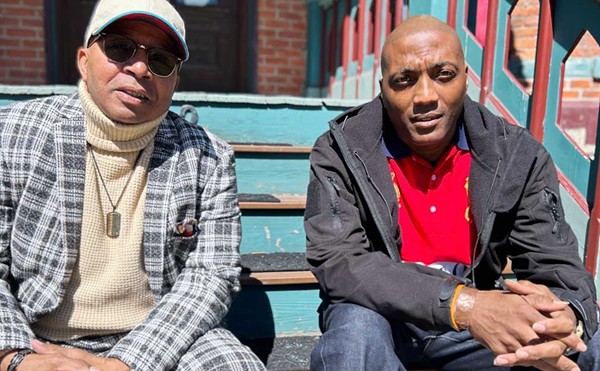It's looking more and more likely that Michigan Democrats will hold some sort of second nominating contest so that our state's delegates will be seated at the party's national convention in August, giving us a say in deciding whether it is Barack Obama or Hillary Clinton who gets to square off against John McCain come November.
Ironic, isn't it, that the Michigan Democratic Party's befuddled attempt to play a larger role in the nominating process by moving the primary ahead could result in us having a significant impact by holding a re-do at the end of the primary race.
But that's the way it's shaping up now that Hil and Bar look to be headed toward the convention without the nomination sewn up. With 156 delegates, Michigan could play a pivotal role in the process.
"Those delegates are crucial," says Liz Kerr, spokeswoman for the Michigan Democratic Party. "Clearly we wouldn't be talking about this if they weren't."
The "this" Kerr refers to is talk of a "do-over" vote here in Michigan. As far as News Hits is concerned, there's no debate.
Punishing Michigan's voters because our leaders decided to hold an early primary is flat-out wrong. The state's delegation needs to be seated. Period. But sending that delegation to Denver based on the results of the January primary is clearly unacceptable because Clinton's name was on the ballot and Obama's wasn't.
But there's more at stake here than just the delegates who would cast their lot with one candidate or another based on what voters have to say. There's also an upper-caste known as "super delegates" that would also be left out in the wilderness if Michigan's voice isn't heard in Denver.
Super delegates, as you may or may not know, aren't selected in primaries or caucuses. Instead, they are select officeholders (members of Congress and governors), party committee members and some former elected officials. There is much speculation that, even if Michigan and Florida (also banished from the convention because it too moved up its primary against national party orders) do gain seats at the convention, it will be the super delegates who end up being the deciding factor in choosing the party's presidential nominee.
Which brings us to something called the Superdelegate Transparency Project, which uses a host of bloggers, citizen journalists and others to shed light on exactly who super delegates are and which candidate they may be casting their lot with. (Google the project name.)
One of the issues surrounding super delegates is this: Should they represent the will of voters in the locales they represent, or should they be free to support whomever they choose?
"That's a controversial question," says Connor Kenny, managing editor of Congresspedia, a wiki-style Web site covering U.S. House and Senate members.
One of the things the transparency project does is show whom specific super delegates back, and how that endorsement matches up with the will of the voters they represent.
"This is a massive research project," says Kenny. "The only way to do it is with open participation by the public."
The goal is to have a profile on every super delegate and whom they are endorsing. To ensure accuracy, all information that's posted must be sourced.
"So far," says Kenny, "nearly 300 citizen journalists have shown up to pitch in on this, so this is clearly something a lot of people have interest in."
News Hits is edited by Curt Guyette. Contact the column at 313-202-8004 or [email protected]




